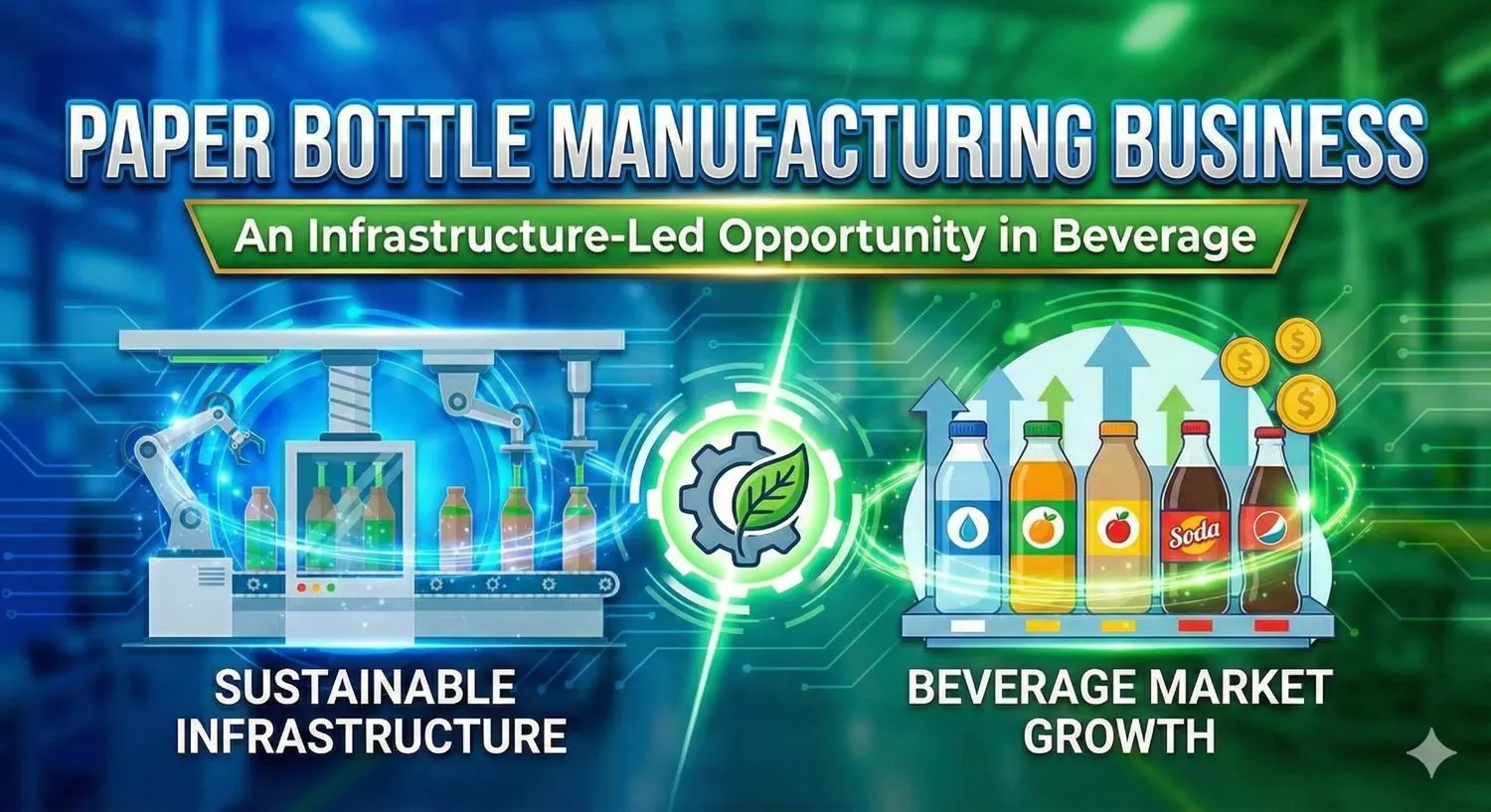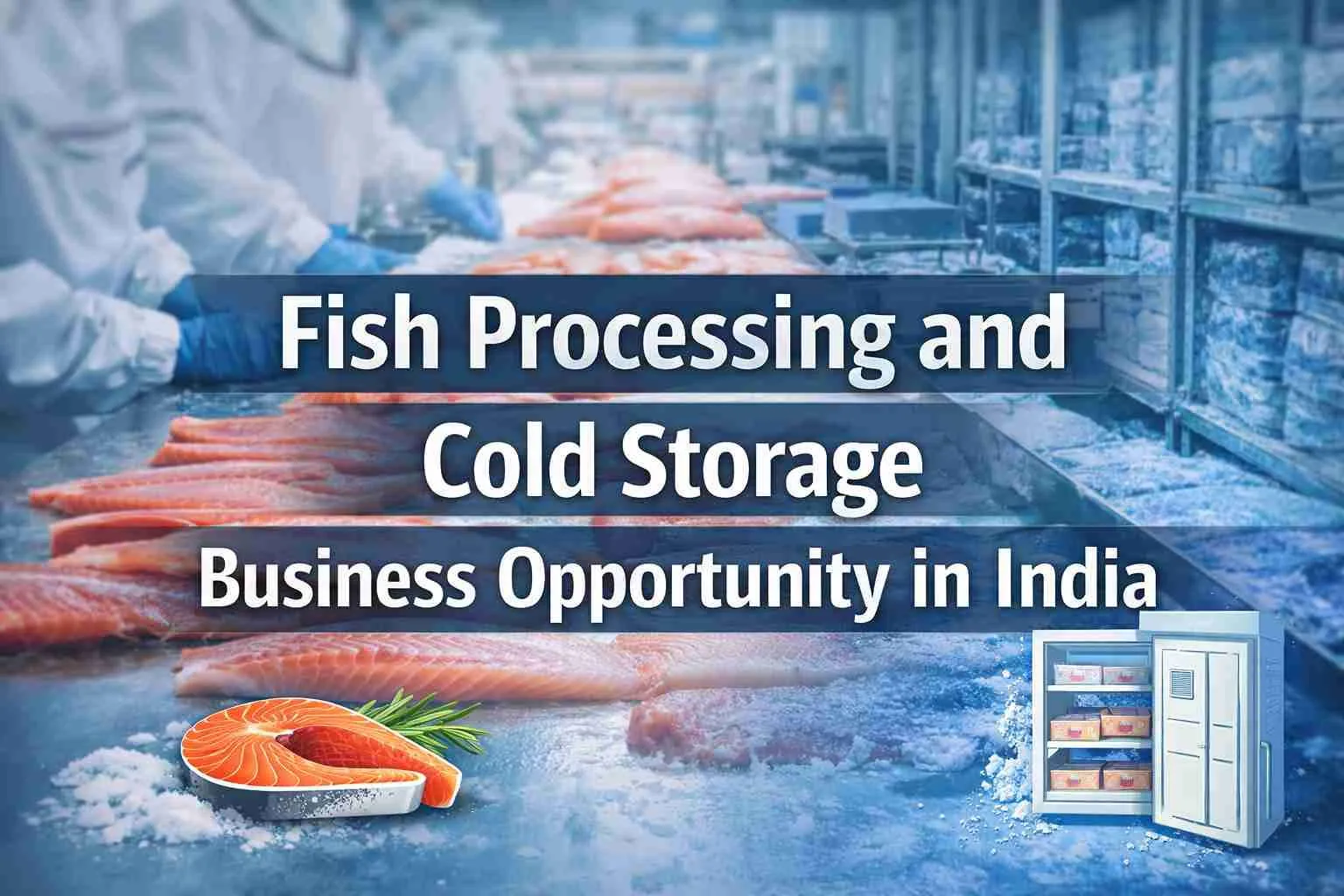
If you’re looking to launch a profitable venture in the industrial sector, then exploring the 5 most profitable manufacturing business ideas is the right place to start. Manufacturing is the backbone of many strong economies because it transforms raw materials into tangible products that are needed every day. The potential for growth, market demand, and government support in manufacturing is enormous. Whether you want to begin small or scale fast, these 5 most profitable manufacturing business ideas give you options that are practical, in demand, and financially rewarding.
Related Project Report: Profitable Business of Magnesium Sulphate
Contents
- 1 5 Most Profitable Manufacturing Business Ideas
5 Most Profitable Manufacturing Business Ideas
Food Processing and Packaging Business
Among the 5 most profitable manufacturing business ideas, the food processing and packaging business stands tall because food will always be in demand. With changing consumer lifestyles and increased focus on convenience, processed foods like snacks, sauces, condiments, spice blends, and frozen items are gaining popularity.
You can start with a simple setup that includes mixing, grinding, cooking, and packaging equipment. Registering under FSSAI, ensuring proper hygiene standards, and targeting a niche segment—like organic or regional products—can give you an edge in the market.
This business scales quickly, especially if you sell via online platforms like Amazon, Flipkart, or your own D2C website. The government also supports agro-processing businesses under various MSME and food ministry schemes, making this idea even more attractive. That’s why food processing is a core part of the 5 most profitable manufacturing business ideas today.
Visit this Page for More Information: Start a Business in Chemical Industry Projects
Related Project: Production Business of Zinc Sulphate
Read our Book Here: The Complete Technology Book On Chemical Industries
Eco-Friendly Paper Bags and Sustainable Packaging
Another powerful entry among the 5 most profitable manufacturing business ideas is eco-friendly paper bag and sustainable packaging manufacturing. With rising environmental concerns and increasing bans on plastic products across the globe, the demand for biodegradable packaging is booming.
You can produce kraft paper bags, recycled wrapping paper, corrugated boxes, or compostable food containers. This business requires low capital investment, basic machinery, and raw materials like recycled paper or plant-based packaging materials.
Retailers, food vendors, ecommerce sellers, and event organizers are actively seeking packaging solutions that align with green initiatives. By offering customization and bulk supply, you can create long-term business partnerships. Eco-conscious consumers and regulations both support this venture, making it a strong candidate in the list of 5 most profitable manufacturing business ideas.
Visit this Page for More Information: Start a Business in Food Processing
Disposable Tableware Manufacturing from Natural Materials
Disposable tableware made from sugarcane bagasse, areca leaf, or corn starch is gaining popularity for its biodegradable nature. As large-scale events, restaurants, and food delivery apps seek plastic alternatives, this business presents tremendous growth.
This is one of the 5 most profitable manufacturing business ideas because it needs relatively simple equipment to start. A small unit can manufacture plates, trays, bowls, and cutlery with materials that are compostable and eco-safe.
The target market includes wedding planners, food stalls, eco-cafes, temples, and corporate event managers. Government grants and subsidies are available to businesses that contribute to reducing single-use plastics. With rising awareness and demand, this business idea is low-risk and offers consistent returns, making it one of the smartest choices among the 5 most profitable manufacturing business ideas.
Related Project Report: Business Industry of Grain Processing
Detergent and Household Cleaner Manufacturing
Another profitable and evergreen idea on the list of 5 most profitable manufacturing business ideas is household cleaning product manufacturing. This includes detergents, toilet cleaners, dishwashing liquids, and multipurpose surface sanitizers.
These products are consumed in every household, hotel, restaurant, and hospital. Setting up a production unit requires basic knowledge of chemical formulas, standard mixing tanks, and packaging equipment. You can start small and build a private-label brand.
Target markets range from neighborhood general stores to large cleaning contractors and online buyers. Creating chemical-free or herbal variants can help attract premium customers. With fast turnover, bulk repeat orders, and moderate production cost, this business offers solid profitability and long-term stability—justifying its place in the top 5 most profitable manufacturing business ideas.
Visit this Page for More Information: Edible Oil Industry
Modular Furniture and Space-Saving Woodwork
Rounding out the profitable manufacturing business ideas is modular furniture manufacturing. Urban populations are growing and living spaces are shrinking. This shift has created a high demand for smart, space-saving furniture solutions.
With some training and carpentry skills, you can manufacture foldable beds, compact study desks, wardrobe systems, and even kitchen cabinets. The demand spans homes, offices, coworking spaces, and rental apartments.
Starting small with a workshop and growing through ecommerce, exhibitions, and contracts with builders or interior designers can yield high profits. Adding innovation—like sustainable wood, recycled materials, or flat-pack shipping—can make your brand stand out.
The furniture business is versatile and consistent, making it one of the 5 most profitable manufacturing business ideas for creative and hands-on entrepreneurs.
Related Project: Setting a Profitable Business of Edible Oil Refinery (Soya & Palm)
Conclusion
Exploring these 5 most profitable manufacturing business ideas gives you a strategic advantage when entering the industrial space. Whether it’s food processing, paper bag production, disposable tableware, cleaning supplies, or modular furniture, each of these ideas is backed by strong consumer demand, low-to-medium investment, and immense growth opportunities.
Manufacturing is a sector where real value is created through production, branding, and innovation. In many developing and growing economies, the government actively supports small-scale manufacturers through loans, training, and infrastructure. If you’re aiming for long-term profits, job creation, and a business with tangible outcomes, ?? profitable manufacturing business ideas offer a roadmap to your entrepreneurial success.
Visit this Page for More Information: Chemical Industry Projects
See More Links:
- Start a Business in Asia
- Start a Business in Potential Countries for Doing Business
- Best Industry for Doing Business
- Business Ideas with Low, Medium & High Investment
- Looking for Most Demandable Business Ideas for Startups
- Start a Business in Africa
- Start a Business in India
- Start a Business in Middle East
NIIR PROJECT CONSULTANCY SERVICES, DELHI
An ISO 9001:2015 Company
ENTREPRENEUR INDIA
106-E, Kamla Nagar, Opp. Mall ST,
New Delhi-110007, India.
Email: npcs.ei@gmail.com
Tel: +91-11-23843955, 23845654, 23845886
Mobile: +91-9097075054, 8800733955
Website: https://www.entrepreneurindia.co
https://www.niir.org














